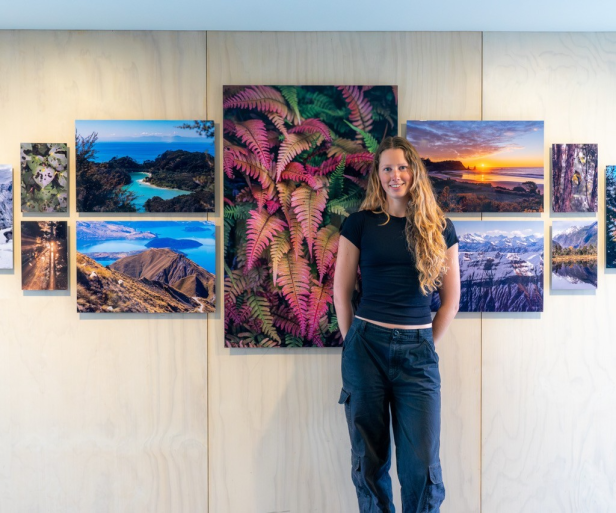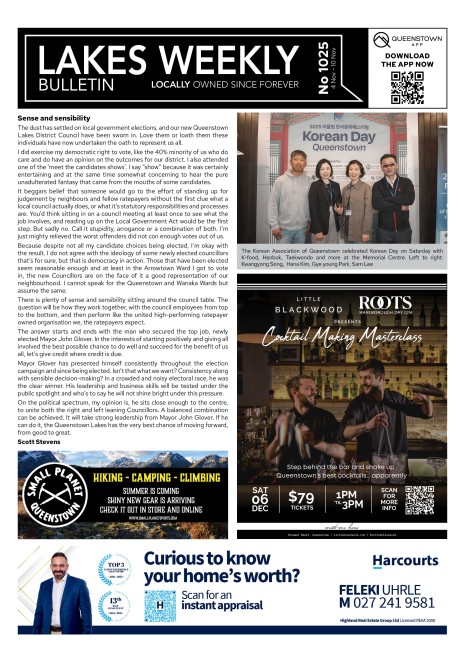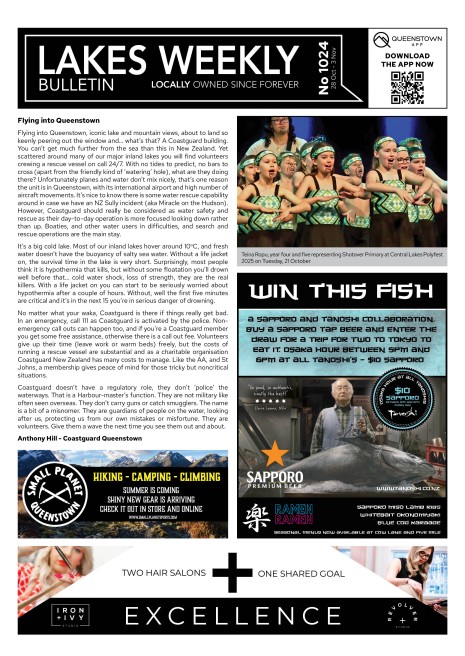Housing crisis: Fresh calls to limit Airbnb and short-term rentals
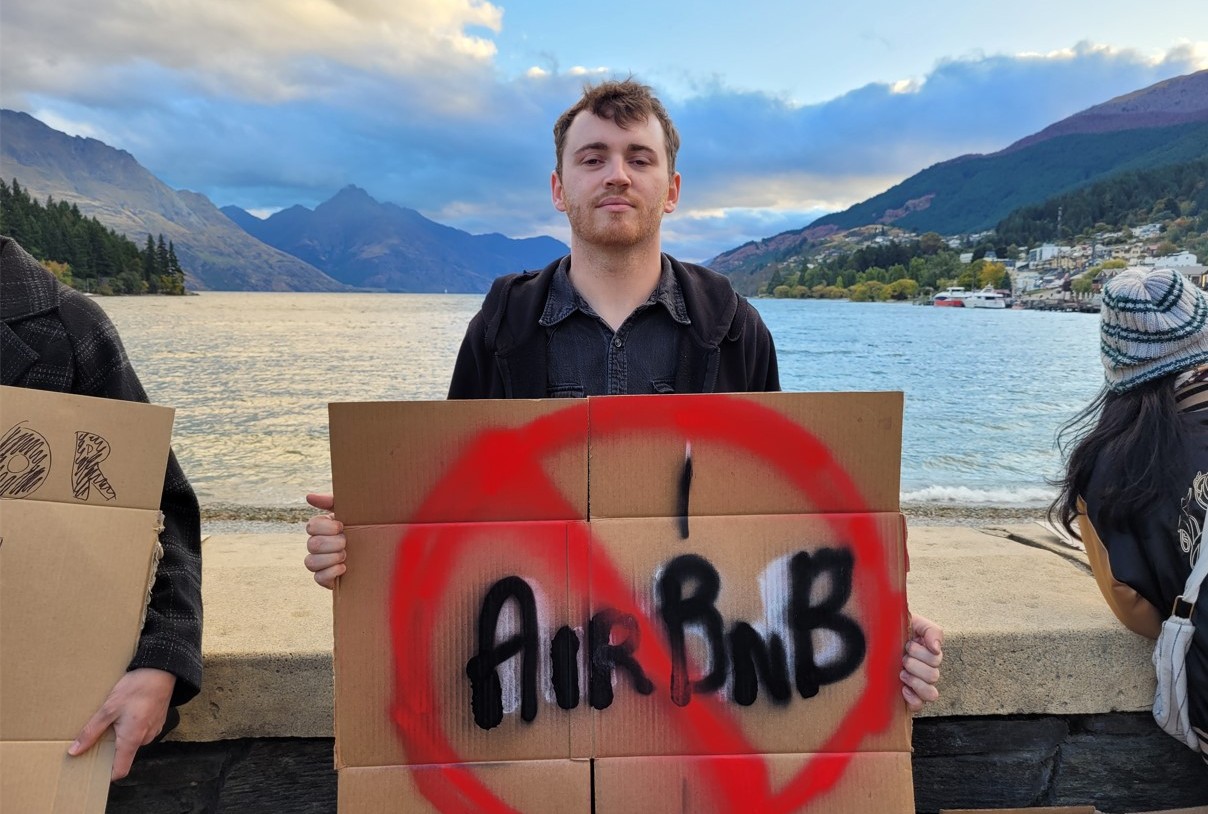
Popularity has long come with a price for Queenstown as New Zealand’s most popular holiday destination, but long-time businesspeople say the current housing crisis is the worst they’ve ever seen.
There’s a resounding cry locally that it’s all due to short-term visitor accommodation platforms like Airbnb offering an additional income stream for homeowners.
Queenstown Lakes Mayor Glyn Lewers says online research shows Queenstown profits from short-term rentals are among the highest in NZ. “I’ve heard some banks are even making standalone units a condition of home mortgages, so it’s not surprising it’s become a popular way to supplement income,” he says.
It's becoming very hard for the council to police just how many days homeowners are letting their properties for and whether they’re sticking within the mainly 90-day a year rules, he says.
“We get calls from the Inland Revenue Department wanting information about short-term lets to ensure this income is declared. That’s tells us the government doesn’t even know.
“The issue we have is getting these online property rental platforms to share their data.” He’s even spoken with the Asia-Pacific head of Airbnb but the information was not forthcoming.
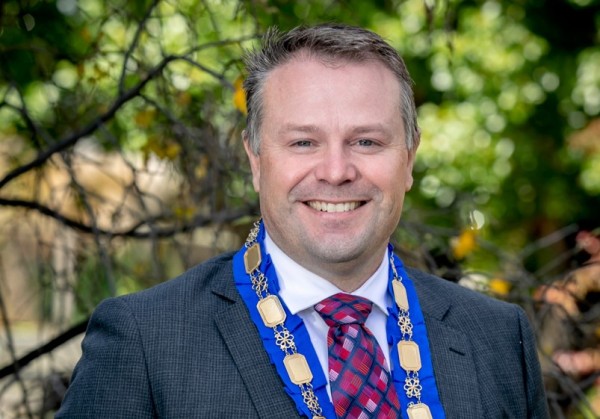
Mayor Glyn Lewers
With the council now back to the drawing board in its bid to tighten local regulations and the requirement to supply more ‘evidence’, the lack of this data doesn’t help, he says. The council decided not to appeal due to the costs after it took the issue to the Environment Court, instead agreeing to a mediated outcome.
“Our planning and legal advice at the time was that we couldn’t prove the adverse effect from short-term lets so we couldn’t impose stricter requirements at a government and local government level.”
Lewers is now picking up the issue with the new coalition government. “We’re looking at how we can find evidence and collect that data.” Short of ‘dobbing in your neighbour which isn’t in the Kiwi psyche’ and doesn’t create great social resilience, it’s a difficult one to police, he says.
Queenstown’s not alone in facing this issue with major cities around the world already tightening, and in some cases, banning Airbnb from residential areas – Paris, New York, Madrid, Barcelona, Venice to name a few.
“I’ve had many emails from other places.” However, Lewers believes there’s greater outsourcing to local government in these centres with Central Government having more control in NZ and his council will be working to get this legislation changed. He’s been talking with the new Tourism Ministers about invigorating the Urban Growth Partnership that was started under the previous National Government.
“If we could have shorter levers of controls over short-term rentals that would help us immensely. I know the Minister is very keen to develop more options.”
Long-time Queenstown resource management lawyer Graeme Todd says he’s never seen the housing crisis so bad in more than 40 years practising locally and, like so many others, blames this issue. Todd believes there’s no Central Government legislation that in any way impacts on the council’s ability to control the provision of short-term accommodation.
Closer to home, Christchurch is tightening short-term visitor accommodation regulations, and Tekapo and Taupo are believed to be facing issues too.
Popular Aussie beach resort Byron Bay has just limited short-term rentals to 60 days a year, down from 90 with that new ruling taking effect this September, Byron Bay Real Estate Agency co-owner Peter Yopp says.
“The local council applied for 90 days, and the State Government came back and said parts, like the commercial centre and beachfront, should be 60,” Yopp says. There’s definitely been some holiday homes coming onto the market ahead of the changes, although other factors may affect that just now, he says. “It will bring values down a little, but we’ll probably see more owner occupiers in the market. People will feel comfortable moving in knowing that there are more limited days of holiday letting, rather than not knowing who will be next to them.”
Renting Jack’s Point homes to short-term visitors is restricted to 42 days per year in its residential precinct after the Jack’s Point Residents’ Association altered its constitution.
Housemart’s Hayley Stevenson says we need to get rid of Airbnb and short-term rentals in residential areas and restrict them to the CBD. “However, I also feel for people having to pay their mortgages and feed their families.”
Changes to the Residential Tenancy Act have made a lot of property owners wary of renting long term, however, the new government has signalled it will reverse that, she says.
While the council will be pursuing legislative changes there will also be a big push to encourage local homeowners to opt for long-term rentals, not everyone can afford to with so many social and cost of living pressures at present.
The Fallout
The Queenstown Lakes Community Housing Trust’s waiting list has pretty much doubled in the past four years from 590 eligible households to 1160 – 83% in Queenstown and 17% in Wanaka.
“People need NZ residency or citizenship to be eligible and the income cap is $130,000 per household with an average household income of $75,000,” trust CEO Julie Scott says.
“A lot come with less, some with a lot more and we’re seeing a mix from service workers and tradespeople to teachers, nurses, police and pensioners.” Housing has become a real concern for the likes of schools trying to attract teachers.
While the rental housing situation flattened off during Covid restrictions producing a significant 30% drop in demand, once the international borders re-opened last year many more property owners returned their homes to short-term visitor accommodation listings.
The trust’s housing stock portfolio has also doubled but that’s clearly not enough to keep up with demand, she says.
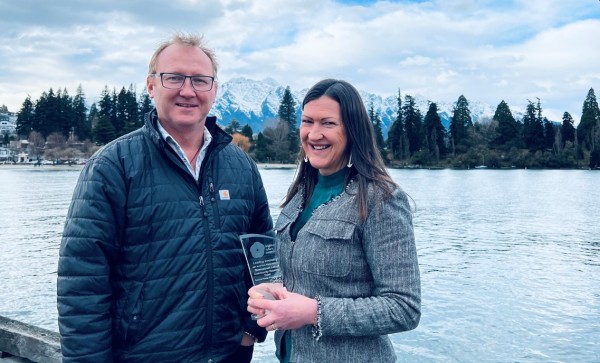
QLCHT boss Julie Hughes with Trust chair Richard Thomas
It’s building 68 homes at Tewa Banks in Arrowtown, 28 in Longview, Lake Hawea, and has another 30 planned across the district. In addition to its assisted ownership and affordable rental programmes, the trust’s also contracted to the government to deliver public housing for low income households. “We’re trying to pull all the levers we can to bring in more supply.”
She’s keen to see the council’s Inclusionary Housing Plan Change process approved. This would enable a requirement that a set percentage of development be provided as affordable housing and keep that in perpetuity.
“This process has been happening on the ground since 2003. If developers are having their land rezoned, let’s say, from rural to residential, they’d typically contribute around 5% of sections to the Trust to be held in perpetuity,” she says.
“But what we really need is for property owners in the community who are renting short term to think about the benefits of renting long-term to the community,” Scott says.
An entry level three-bedroom property is fetching between $850 to $900 at least per week in popular new subdivisions so she believes it’s not a big ask.
The trust is just launching its fifth Renters’ Survey to help understand the needs and issues in the community better.
Hannah Sullivan, of Queenstown Housing Initiative, says it can now cost more than $300 a room for a flat in Queenstown with the situation continuing to push rentals up.
“We’re seeing bidding wars when social media posts go up for rooms and something needs to be done to fix this,” she says.
“While there’s a lull mid-season there are still a lot of people coming to town and looking for housing. I know a lot have not had their lease renewed too.”



